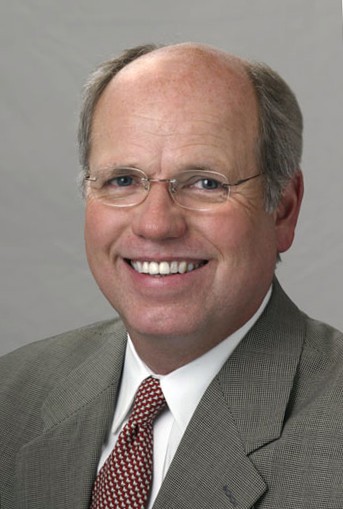RCPA Board Member Dennis W. Nebel, PsyD, of Human Services Center Retiring
RCPA News 2019
RCPA News is a premier industry resource compiled by the Rehabilitation and Community Providers Association for the health and human services communities.
PA to Operate Its Own Health Insurance Exchange
Capitolwire: Gov. Wolf signs into law bill allowing Pennsylvania to operate its own health insurance exchange, create reinsurance program.
By Alyssa Biederman
PLCA Intern
HARRISBURG (July 2) – Legislation hoping to make health insurance more accessible and less expensive for Pennsylvanians was signed into law on Tuesday by Gov. Tom Wolf.
“This bill is a huge step toward making health insurance affordable and effective for all Pennsylvanians,” said Wolf, indicating the hope is for the new law to make it so “everyone pays less.”
House Bill 3 was a bi-partisan effort to allow Pennsylvania to create its own state-run health insurance exchange, which will minimize Federal costs and allow the state to subsidize premiums.
HB3 prime sponsor and House Majority Leader Bryan Cutler, R-Lancaster, said healthcare is an issue for everyone, regardless of political party, that has to be solved.
“For too long people have been frustrated with healthcare,” Cutler, a former X-Ray technician, said. “Instead of focusing on making things better, we too often focus on what things cost.”
He added that the enactment of this bill — which will be effective for the Fall 2020 open enrollment and insurance coverage that begins Jan. 1, 2021 — will “significantly” decrease costs for Pennsylvania’s more than 400,000 private health insurance consumers that currently obtain their insurance from the federally-run exchange.
The bill will achieve this by transferring Pennsylvania’s existing health insurance exchange from federal to state control. Becoming state-run, Wolf said, will save money that will ultimately be used to decrease the amount health insurance consumers have to pay each month.
Pennsylvania has relied on the federal health insurance exchange since the implementation of 2010’s Affordable Care Act, also known as Obamacare. According to the Wolf administration, to cover costs, the federal government charges insurers a 3.5-percent fee on premiums paid by ACA enrollees each month, a projected $98 million for Pennsylvania insurers in 2019. This user fee is expected to be cut to 3 percent beginning in 2020, which would equate to approximately $88 million dollars from Pennsylvania insurers. Eliminating the need for insurers to pay that fee will allow for a redirection of that funding to help pay for a reinsurance program, which will allow insurers to price their products lower by limiting their exposure to very high, unpredictable medical expenses incurred by their members; the reinsurance program covers some of those expenses when they exceed a certain threshold.
Pennsylvania Insurance Commissioner Jessica Altman said she believes this change will incentivize more Pennsylvanians to apply for health insurance in the state.
Altman added that although the signing of the bill is a step forward, the state must continue to make health insurance more accessible.
“The passage of this legislation is analogous to registering for a marathon,” Altman said. “The race is still before us. We have a lot of training to do and roads to run before we reach the finish line.”
Cutler said he is confident that Pennsylvania’s four legislative caucuses will be able to keep passing legislation that will improve Pennsylvania’s health insurance landscape after seeing the collaboration that went into HB3. The bill passed unanimously in the House and Senate last week.
This plan was inspired by an executive order by President Donald Trump which provided states with more flexibility regarding the operation of their own health insurance exchanges.
“Regardless of how you feel about the status of things in Washington, D.C., we have a responsibility to govern here in Pennsylvania,” said Cutler. “That’s what this bill demonstrates better than anything else.”
Questions, please contact Jack Phillips.
RCPA President/CEO Richard Edley Quoted in Article on Opioid Crisis
RCPA News 2018
RCPA News is a premier industry resource compiled by the Rehabilitation and Community Providers Association for the health and human services communities.
Richard Edley on PA Newsmakers Talks Opioid Crisis and Provider Payments
Richard Edley, RCPA President and CEO, joins host Terry Madonna on PA Newsmakers for an update on provider payments, and combating the heroin epidemic (Starts at 12:18). Visit @PANewsmakers on Twitter.
Medicaid Change Affecting ~ 10,000 in Lancaster Co. Pushed Back a Year
RCPA Congratulates Ted Dallas on New Position with NHS
Ted Dallas, most recently Special Advisor to Governor Wolf and former Secretary of the Department of Human Services (DHS), joined RCPA member NHS, a leading provider of community-based, nonprofit education and human services, as Chief Operating Officer (COO) on March 12.
“Having worked with former Secretary Dallas over the years, we are confident that he will make an outstanding addition to the NHS team,” said RCPA President and CEO Richard Edley. “RCPA wishes Ted much success in his new role and we look forward to working with him and NHS to continue improving services to those living with disabilities in the Commonwealth.”
See the NHS press release here.
















